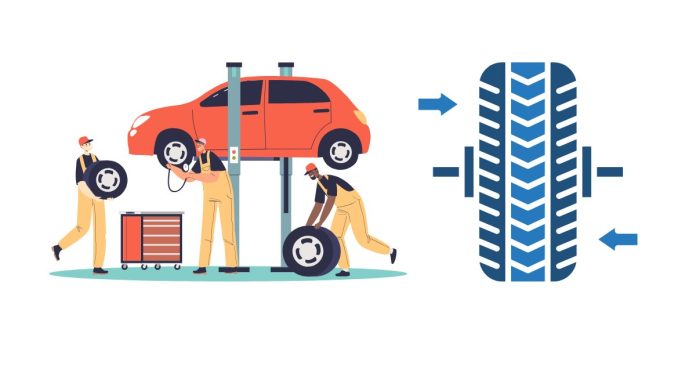When it comes to maintaining your vehicle, tire balancing is one of the most important but often overlooked services. Tires that are out of balance can lead to uneven wear, vibrations, and even more serious issues with your suspension system over time. But how much should you expect to pay for tire balancing, and what factors influence the cost? In this blog post, we’ll break down what tire balancing involves, what the typical costs are, and when it might be necessary to get your tires balanced.
What Is Tire Balancing?
Tire balancing is the process of ensuring that a vehicle’s tires and wheels rotate without causing vibrations. Over time, tires can become imbalanced due to uneven wear or irregularities in the tire itself. When a tire is out of balance, it can cause issues such as vibration, particularly at higher speeds, and can lead to faster wear on your tires. Proper tire balancing involves attaching small weights to your wheels to ensure that the weight is evenly distributed around the tire.
How Much Does Tire Balancing Typically Cost?
The cost of tire balancing can vary based on several factors, but on average, you can expect to pay anywhere from $10 to $20 per tire. This price generally covers the cost of labor and the necessary weights to balance the tires. If you need to balance all four tires, the total cost can range between $40 to $80.
However, keep in mind that there are a few factors that can influence the overall cost:
1. Location and Service Provider
Where you go for tire balancing can significantly impact the cost. Chain tire shops and big-box retailers like Walmart or Costco may offer tire balancing at lower rates compared to independent or luxury service shops. Dealerships, especially for high-end or luxury vehicles, might charge more due to the specialized equipment and service they provide.
- Big-box retailers: Generally charge the lower end of the spectrum, around $10 per tire.
- Independent shops: Can range from $15 to $25 per tire depending on the region and service quality.
- Dealerships and specialty shops: May charge $20 to $30 per tire, especially for high-performance vehicles or specialty tires.
2. Type of Vehicle and Tires
The type of vehicle you drive can affect the cost of tire balancing. For example, balancing the tires on a standard sedan may cost less than balancing those on an SUV or a truck, as larger tires are more expensive and may require more specialized equipment. Additionally, if you have performance tires, off-road tires, or custom rims, the price may be higher due to the complexity of balancing these types of tires.
- Standard tires (sedans, compact cars): Around $10–$20 per tire.
- Larger tires (SUVs, trucks): May cost more, ranging from $15–$30 per tire.
- Specialty tires (performance, off-road, custom rims): Could cost $25 or more per tire.
3. Whether It’s Part of a Larger Service Package
Many auto service centers and tire shops offer tire balancing as part of a larger service package, which might include tire installation, rotation, or alignment. If you’re purchasing new tires or getting your tires rotated, balancing might be included in the overall cost. In some cases, shops will offer tire balancing for free as part of a promotion or as a complimentary service after you buy new tires from them.
4. Add-Ons and Extra Services
Sometimes, extra services such as tire rotation, alignment, or even inspection of the suspension system might be included in the balancing service, especially if there are indications of deeper issues. If additional work is needed beyond balancing (e.g., suspension repairs or tire replacement), the cost will rise accordingly.
- Tire rotation and balancing combo: Usually costs between $30 and $50 for all four tires.
- Alignment: Typically costs between $75 and $100, but it is not included in tire balancing.
When Should You Get Your Tires Balanced?
You should get your tires balanced when:
- You notice vibrations: If you experience vibrations in the steering wheel, floor, or seat while driving, especially at higher speeds, it could be a sign that your tires are out of balance.
- You’re installing new tires: New tires should always be balanced to ensure they perform optimally.
- After rotating tires: Tire balancing should be checked after rotating your tires to prevent any issues from arising due to the different wear patterns on each tire.
- Uneven tire wear: If your tires are wearing unevenly, it could be a sign that they are out of balance, and having them balanced could help extend their lifespan.
The cost of tire balancing is relatively affordable, typically ranging from $10 to $20 per tire, depending on where you go and the type of vehicle you have. Regular tire balancing is a key part of maintaining the health of your tires and ensuring a smooth, safe ride. If you’re unsure whether your tires need balancing, a visit to your local tire shop can help diagnose the problem. And while balancing is generally inexpensive, neglecting it can lead to larger issues down the road, including premature tire wear and even suspension problems.
Ultimately, getting your tires balanced is a simple and cost-effective way to keep your vehicle running smoothly and safely. Make it a part of your regular vehicle maintenance routine!


